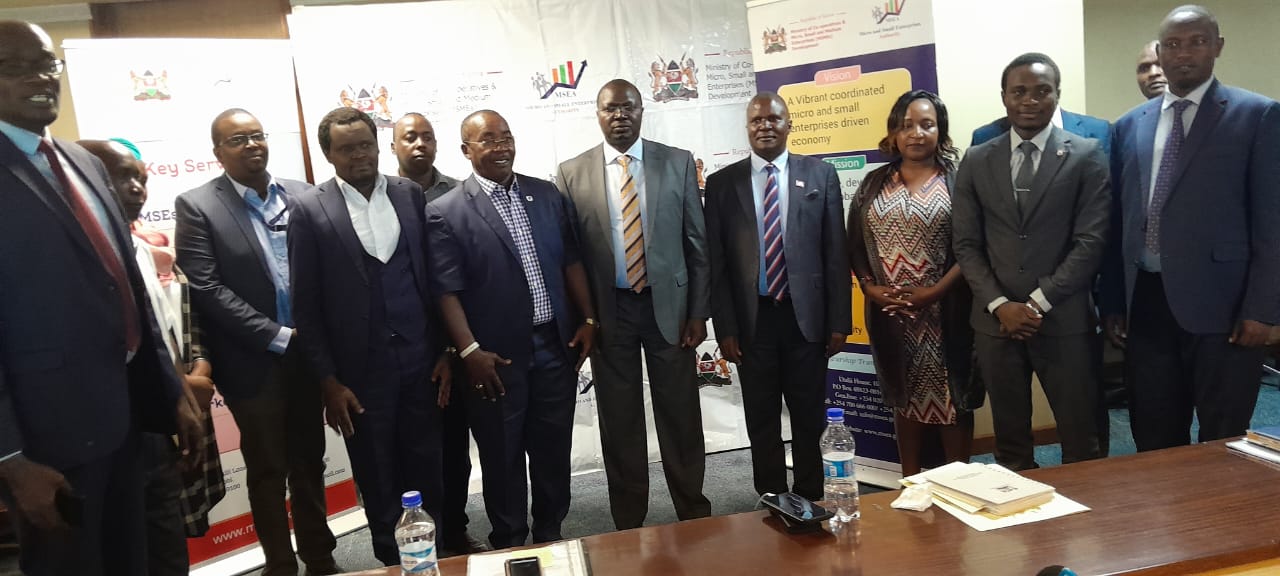The business community in Nakuru has declared that it will only support a gubernatorial candidate and aspiring Members of the County Assembly (MCAs) whose manifestos clearly outlined strategies to make the devolved unit attractive to both foreign and local investors.
The group under the umbrella Nakuru Business Community Association (NBCA) indicated that since the advent of devolution most county governments had focused on the imposition of new fees and levies on the private sector to generate revenue.
According to NBCA chairman Stephen Muli the imposition of cess, advertising fees and myriad others was killing the business environment and the ability of the private sector to generate jobs and money.
“We have been studying manifestos of all those eyeing Governorship and slots in the County Assembly to determine how through the County Integrated Development Plan (CIDP), they will articulate Nakuru’s competitive advantage and strategies aimed at capitalizing on that in a manner that makes the County profit and generate jobs,” he stated.
Mr. Muli stated that in the mid-term, the Governor and County Assembly that will assume office after August 9 General Election should actively focus on reducing administrative and regulatory costs of doing business, creating clear implementable strategies for ensuring stability and security, developing robust education and health structures and being seen to be visibly addressing corruption through the development of transparent county level public financial system.
He added, “We have already held talks with Senator Susan Kihika and she has pledged that if elected Governor she will make efforts to develop Public Private Partnership mechanisms to pull in the private sector to address county population needs. When investors perceive an environment to be hurdle-free, it is easy for them to plan long-term investments, becoming development partners that supplement the county government’s efforts.”
During a media briefing held at a Nakuru hotel Mr. Muli noted that to attract and retain investments in the county, businesses need to partner with the county government to enhance development through building infrastructure, restoration of natural resources, refining the education curriculum and offering productive jobs in order to raise the living standards for every citizen.
While hailing the County and National government’s efforts to expand the roads network in the devolved unit the chairman pointed out that infrastructure was only one component of the solution to the chaotic public transport system.
“Relocating matatus from the Central Business District is killing many businesses. The point is to build a transport system that benefits investors, operators and the public and that means changing the way public transport is managed,” he stated.
Mr. Muli who doubles up as the Director of Mololine Prestige Shuttle Services suggested a change of tax policy in public transport which would encourage the use of public means but not at the expense of timeliness and convenience, the reasons passengers opt for private cars.
“There should be selective taxation mechanism to favor mode of travel or more over the other (s) with a view of providing convenient, efficient, safe, reliable, equitably and sustainable usage of transport infrastructure,” indicated the Chairman.
Levies such as congestion tax, he added, where vehicles in clogged up areas are taxed more than decongested areas and charges on busy roads should also be introduced as is done in other countries.
These taxes, according to Mr Muli, will limit the number of private vehicles on the road, effectively easing traffic flow and that tolls should also be introduced where road users pay to use certain roads that are faster and more convenient.
Joseph Gikandi who spoke on behalf of hawkers said they would only support candidates who have clearly defined accessible career pathways for the current and future skill needs so as to identify those who are already well suited for key activities to catalyze economic activity.
“In the long-term, Ms. Kihika’s manifesto proposes the development of an investment fund where some revenue can gain interest. This has been divided into short, medium and long-term strategies that include deposits, treasury bills, treasury and corporate bonds as well as strategic equities with the ultimate aim of creating a county ‘sovereign wealth fund’. Through this strategy, the county government will build capital in a prudent manner,” stated Gikandi.
He said it would be in the best interests of residents if the next County Government stopped charging exorbitant land rates in regions where infrastructural investments are yet to be made, as doing so was a huge deterrent to current and potential investors.
Anne Njehia who represented Medium and Small Enterprises (MSMEs) owned by women stated that Nakuru County needed an administration that will deliberately and strategically focus on sectors that will lead to economic growth and development, employment generation and poverty reduction.
Ms. Njehia said the business community was scrutinizing how aspirants were proposing to carry out capacity building for communities to be empowered to participate effectively in the county development agenda.
“An empowered community will be able to keep the county leadership in check promoting transparency and accountability,” she added.

